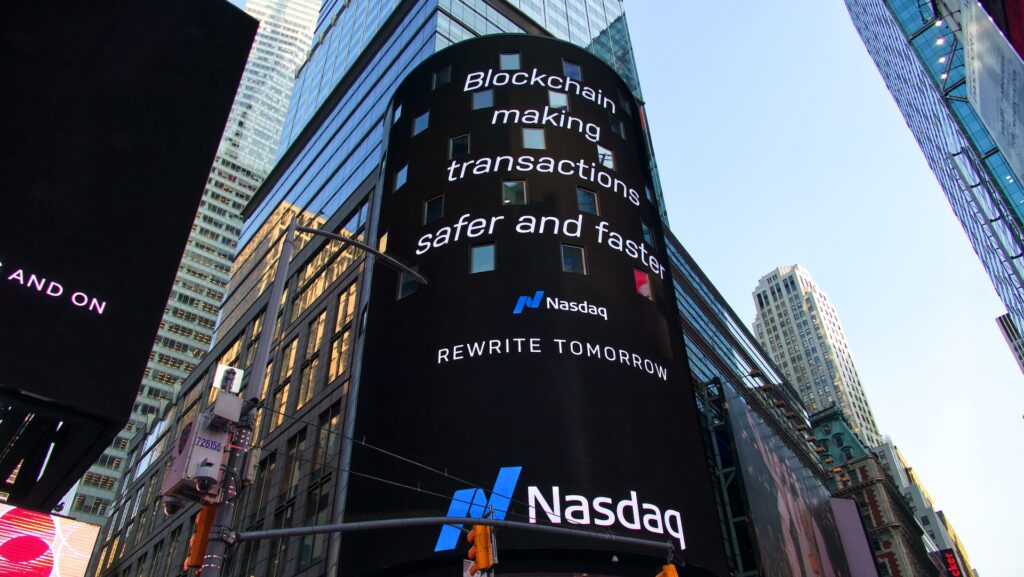As a real estate investor, you’re always on the lookout for new opportunities and trends that can help you stay ahead of the curve. In recent years, the emergence of the decentralized real estate market and fractional real estate investing has piqued the interest of many forward-thinking investors like yourself. By understanding these concepts and their implications, you can position yourself to capitalize on the future of real estate investing.
In this blog post, we will delve into the world of decentralized real estate markets, exploring how they differ from traditional, centralized markets and why this shift is gaining momentum. We’ll also introduce the concept of fractional real estate investing, a key element in the decentralized landscape, and discuss its benefits and potential impact on the industry as a whole.
Furthermore, we’ll examine the role of blockchain technology in driving this transformation, and the security and transparency it brings to the table. Of course, no discussion on this topic would be complete without addressing the challenges and risks associated with decentralized real estate markets and how to overcome them.
By the end of this post, you’ll have a comprehensive understanding of the decentralized real estate market and fractional real estate investing, empowering you to make informed decisions as you navigate the ever-evolving world of real estate investment. So, let’s dive in and explore the future of real estate investing together.
What Is a Decentralized Real Estate Market?

Before going into the specifics of a decentralized real estate market, let’s first define decentralization. In its simplest form, decentralization refers to the distribution of power and authority away from a central entity or organization. This concept can be applied to various industries, including real estate.
Centralized vs. Decentralized Real Estate Markets
In a traditional, centralized real estate market, the buying and selling of properties are primarily facilitated by a few key players such as real estate agents, brokers, and financial institutions. These intermediaries often control the flow of information, transactions, and access to resources, which can lead to inefficiencies, limited transparency, and higher costs for investors.
On the other hand, a decentralized real estate market aims to remove or reduce the influence of these intermediaries. By leveraging new technologies like blockchain and smart contracts, transactions can be executed directly between buyers and sellers without the need for middlemen. This results in a more transparent, efficient, and cost-effective and liquid marketplace for real estate investments .
Advantages of Decentralization in Real Estate
There are several advantages to embracing a decentralized real estate market, some of which include:
- Increased accessibility: Decentralization allows for greater accessibility to real estate investments, enabling a broader range of investors to participate in the market. This can lead to increased liquidity and diversified investment portfolios.
- Lower costs: Removing the need for intermediaries can significantly reduce transaction costs, such as agent fees and commissions. This allows investors to keep more of their profits and potentially invest in additional opportunities.
- Greater transparency: Decentralized real estate platforms often provide investors with more comprehensive and accurate information about properties and transactions. This level of transparency can lead to better decision-making and improved trust among market participants.
- Enhanced security: By utilizing blockchain technology, decentralized real estate transactions can offer improved security and reduced risk of fraud. The tamper-proof nature of blockchain ensures that transaction records are accurate and immutable.
- Global reach: Decentralized real estate markets can enable investors to access properties and investment opportunities worldwide, without the traditional barriers posed by international borders and regulations.
Fractional Real Estate Investing: A Key Element of Decentralized Real Estate Market

Fractional real estate investing is a model that allows investors to purchase shares of a property instead of the entire thing. It has become increasingly popular in recent years, as it provides an opportunity for individuals to invest in real estate without having to commit large amounts of capital or take on the full responsibility of ownership.
Fractional ownership works by dividing a property into smaller units and allowing multiple investors to own a portion of the property. This type of investment can be beneficial for both investors and developers, as it allows them to spread risk across multiple parties while still allowing each investor to benefit from the appreciation of their share.
The benefits of fractional real estate investing are numerous. For starters, it eliminates the need for large upfront investments, which can be difficult for many people to come up with. Additionally, fractional ownership allows investors to diversify their portfolios and access markets that may otherwise be out of reach due to high entry costs. Furthermore, fractional ownership also reduces management costs since all owners are responsible for maintaining their portion of the property.
There are several platforms available today that enable fractional real estate investing, such as Arrived, Fractional App, Fundrise, and Lofty. Each platform offers its own unique set of features and benefits that make it easier for investors to get started with fractional real estate investing.
The Role of Blockchain Technology in Decentralized Real Estate Market

Blockchain technology has been making waves across various industries, and its potential to revolutionize the real estate market cannot be understated. In this section, we’ll discuss how blockchain enables decentralization in real estate and the security and transparency it offers.
Overview of Blockchain Technology
At its core, blockchain is a decentralized, distributed digital ledger that securely records transactions across a network of computers. Each transaction is time-stamped and linked to the previous one, forming a chain of blocks that cannot be altered without consensus from the network. This ensures the integrity and immutability of the data stored on the blockchain.
How Blockchain Enables Decentralization in Real Estate
Blockchain technology plays a crucial role in facilitating decentralization within the real estate market in several ways:
- Smart contracts: These self-executing contracts, built on blockchain platforms like Ethereum, can automatically enforce the terms of an agreement between parties. In a decentralized real estate market, smart contracts can streamline transactions by eliminating the need for intermediaries, such as escrow agents, and reducing the chances of fraud or human error.
- Tokenization: Tokenization is the process of representing real-world assets, such as real estate properties, as digital tokens on a blockchain. This allows for fractional ownership and trading of these assets, making it easier for investors to access and diversify their real estate portfolios.
- Property records: Blockchain can be used to create secure, transparent, and easily accessible property records. By storing property titles and transaction histories on a decentralized ledger, the process of verifying ownership and conducting due diligence becomes more efficient and reliable.
- Cross-border transactions: Blockchain technology simplifies international real estate transactions by enabling seamless, secure, and cost-effective transfers of value across borders. This can help investors tap into global markets with reduced friction and risk.
Security and Transparency Offered by Blockchain
Blockchain’s inherent security and transparency features make it an ideal foundation for a decentralized real estate market. Some of the key benefits include:
- Immutable records: The tamper-proof nature of blockchain ensures that once a transaction is recorded, it cannot be altered or deleted. This creates a secure and trustworthy environment for real estate transactions.
- Transparency: All transactions on a blockchain are publicly viewable and verifiable, fostering trust among market participants. This increased level of transparency can help reduce disputes, fraud, and corruption in the real estate industry.
- Data privacy: While blockchain transactions are transparent, user identities can be protected through cryptographic techniques. This ensures that sensitive information remains confidential while still allowing for verification and validation of transactions.
- Reduced risk of fraud: The decentralized nature of blockchain technology makes it difficult for malicious actors to manipulate the system or commit fraud. With no single point of failure, the risk of hacking or data breaches is significantly reduced.
Challenges and Risks in Decentralized Real Estate Market

While the decentralized real estate market offers numerous advantages, it is crucial for investors to be aware of the potential drawbacks and risks associated with this emerging landscape. In this section, we will discuss some of these challenges and explore ways to overcome them.
Potential Drawbacks and Risks of Decentralization
- Technological complexity: The underlying technologies that enable decentralization, such as blockchain and smart contracts, can be complex and difficult to understand for many investors. This learning curve may deter some from participating in the decentralized real estate market.
- Limited regulation and oversight: As a relatively new concept, the decentralized real estate market may lack comprehensive regulations and oversight, leading to potential risks for investors. The absence of a central authority could also result in disputes that are more challenging to resolve.
- Market volatility: Like other digital assets, the value of tokenized real estate investments may be subject to significant fluctuations due to market sentiment and external factors. This volatility can pose risks for investors seeking stable returns.
- Liquidity concerns: While tokenization and fractional ownership can improve liquidity, the decentralized real estate market is still in its infancy. As a result, there may be limited trading activity and secondary market opportunities for certain tokenized assets, affecting the ease with which investors can buy or sell their holdings.
Regulatory Challenges and Legal Considerations
Navigating the regulatory landscape is a crucial aspect of investing in the decentralized real estate market. Some key considerations include:
- Jurisdictional differences: Regulations and legal frameworks for decentralized real estate markets may vary significantly between countries. Investors must familiarize themselves with local laws and restrictions before participating in cross-border transactions.
- Tax implications: The tax treatment of decentralized real estate investments and transactions may be unclear or subject to change as regulations evolve. It is essential for investors to consult with tax professionals to understand and comply with their tax obligations.
- Compliance requirements: Depending on the jurisdiction, decentralized real estate platforms and issuers of tokenized assets may be subject to specific regulatory and compliance requirements. Ensuring adherence to these rules is vital for both investors and platform operators.
Overcoming Challenges in the Decentralized Real Estate Market
To successfully navigate the challenges and risks associated with the decentralized real estate market, investors can adopt the following strategies:
- Education and research: Staying informed about the latest developments in decentralization technologies, regulations, and market trends is crucial for making well-informed investment decisions.
- Diversification: By diversifying their investment portfolio across various asset classes and markets, investors can mitigate some of the risks associated with market volatility and liquidity concerns.
- Professional guidance: Engaging with legal, tax, and financial advisors who are knowledgeable about the decentralized real estate market can help investors navigate complex regulations and ensure they are making sound decisions.
The Future of Real Estate Investing

As the decentralized real estate market continues to gain traction, it’s essential to consider its potential impact on the future of real estate investing. In this section, we will explore predictions for the growth of this market, its effects on traditional real estate investing, and the opportunities it presents for investors.
Predictions for the Growth of Decentralized Real Estate Market
The decentralized real estate market is expected to experience significant growth in the coming years, driven by factors such as technological advancements, regulatory developments, and increasing investor interest. According to a report by MarketsandMarkets, the global blockchain in the real estate market is projected to grow from $504 million in 2018 to $4.5 billion by 2023 and $94 billion by 2027, at a Compound Annual Growth Rate (CAGR) of 54.0% during the forecast period.
While it’s challenging to predict the exact trajectory of the decentralized real estate market, several trends suggest it will continue to expand:
- Wider adoption of blockchain technology: As more industries adopt blockchain technology, its applications within the real estate sector are likely to increase. This could lead to greater acceptance of decentralized real estate platforms and tokenized assets.
- Regulatory clarity: As governments and regulators develop clearer guidelines and frameworks for decentralized real estate markets, investor confidence and participation in these markets are expected to grow.
- Increased accessibility: The ongoing development of user-friendly platforms and tools that simplify the process of investing in decentralized real estate markets will attract more investors, further fueling the market’s growth.
Impact on Traditional Real Estate Investing
The rise of the decentralized real estate market has the potential to disrupt traditional real estate investing in several ways:
- Reduced reliance on intermediaries: By streamlining transactions and reducing the need for middlemen, decentralized real estate platforms can lower costs and increase efficiency for investors.
- Greater market accessibility: Decentralized real estate markets can democratize access to investment opportunities, allowing more individuals to participate in the real estate market and diversify their portfolios.
- Shift in industry dynamics: Traditional real estate players, such as brokers and agents, may need to adapt to the changing landscape by embracing new technologies and business models or risk being left behind.
Despite these potential disruptions, it’s essential to note that traditional real estate investing is unlikely to disappear entirely. Instead, the decentralized real estate market may complement and coexist with existing models, offering investors a broader range of options and opportunities.
Opportunities for Investors in the Decentralized Real Estate Market

As the decentralized real estate market continues to evolve, it presents numerous opportunities for investors, including:
- Fractional ownership: By allowing investors to purchase small fractions of properties, tokenization can enable them to access previously unattainable investment opportunities and diversify their portfolios.
- Global exposure: Decentralized real estate platforms can provide investors with access to international markets, enabling them to tap into new opportunities and hedge against local market risks.
- Increased liquidity: Tokenized assets can potentially be traded more easily on secondary markets, offering investors greater flexibility and control over their investments.
- Innovative investment products: As the decentralized real estate market matures, we can expect to see the emergence of new investment products and services tailored to specific investor needs and preferences.
In conclusion, the future of real estate investing is likely to be shaped by the growth and development of the decentralized real estate market. By staying informed about this emerging landscape and adapting their strategies accordingly, investors can position themselves to capitalize on the numerous opportunities it presents.

Are you looking to master your rental property management? Get your copy of Achieving Financial Success as a Property Manager: An Insider’s Guide today and become an expert in managing rental properties. This comprehensive guide provides all the strategies and information necessary to succeed in this exciting industry, so don’t miss out – get your copy now from your favorite bookseller:
- Amazon
- Books2Read for Apple, Barnes & Noble, Kobo, Scribed, and 8 more sellers with both eBook and paperback options available
- Payhip as a PDF
Content created by J. Scott Digital freelance copywriting services.







